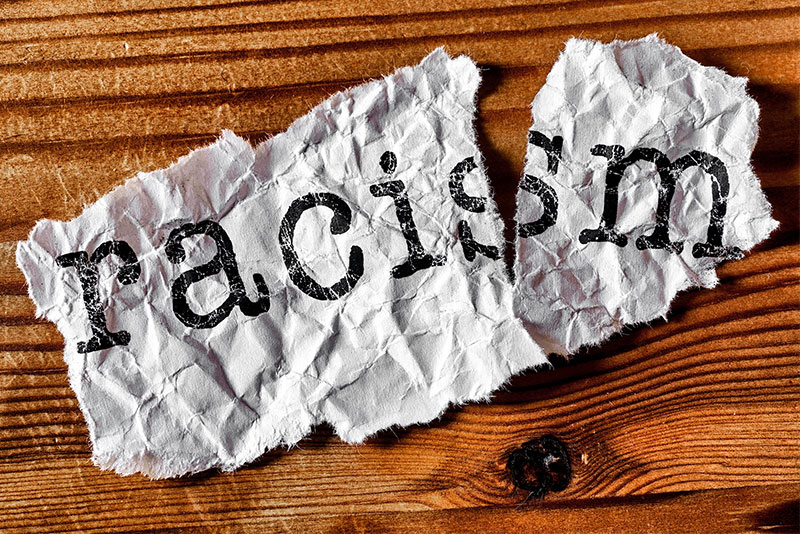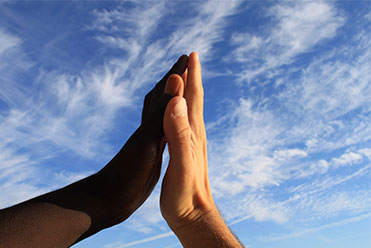
Talking about race is challenging. Perhaps part of the reason is members of white, privileged American culture have difficulty recognizing the fact that our country was established through colonialism, slavery and institutionalized racism. Those toxic elements are fused into the DNA of our culture. Though we try to tell ourselves otherwise, those qualities have never gone away. In truth, we’ve just taught ourselves to avoid looking at them directly and as a result, inequity and inequality are as prominent as ever before. In her new class, Race and You: For Your Consideration, instructor Christina Chang plans to look at why racism persists and what can be done to understand and move beyond.
The murder of Trayvon Martin on February 26, 2012 greatly impacted Chang’s spirit and from it she heard her life’s calling. “It was an awakening,” she recalls. “My son was 13, and Trayvon was 17, just a few years older. The kids were all wearing hoodies at the time, and it occurred to me I would never have to worry that my kid would ever not come home for wearing a hoodie. It saddened me to my bones. It still does.”
Chang said she did not have opportunity to channel her fears and grief in her professional life until Ana Mari Cauce was hired as University of Washington college president. “The idea that this was our first female, first openly gay, first Latina president at the UW, despite all of our claims of being a progressive campus, was galling, AND inspiring,” she recalls. “Then came Michael Brown, and the subsequent mayhem in Ferguson, MO happened. It was actually the 5-year anniversary a few weeks ago. President Cauce deputized folks at the UW to do the right thing, to shine the light on inequity, and to work to be the world we wanted to see. My two white bosses at the time gave me permission to push our organization, so that's what my team and I did. We did 4 years of hard work where we actively engaged in race-conscious talent management and we became a nationally recognized best-practice fundraising organization.”
Chang spent 15 years as chief administrative officer for the Advancement Division at the University of Washington, where it was her duty lead the Finance, Human Resources and Facilities teams. Last year she left that position to pursue independent diversity, equity and inclusion work full time. “My learning curve has been vertical,” she says. “I've had the time of my life working as a social justice solopreneur this past year.”
To understand racism, it is paramount we agree on the language we use to discuss it. “I always start class with definitions and an understanding of foundational vocabulary and concepts,” says Chang. “In a nutshell, let me say this: Diversity is our Strength, Equity should be our Commitment, and Inclusion is our Goal. These concepts are unfamiliar to so many of us simply because we are not taught them as a part of our formal education. Dominant culture hasn't had to know anything about these concepts to live, thrive and die in this country. I think (I hope!) this is changing.”
Change is slow, but Chang is emboldened by what she sees in younger generations. “Many progressive Gen Y, Gen Z and Post Gen Z-ers have come of age with same-sex marriage as the default and are more likely to see gender and sexuality as fluid,” she says. “I am feeling hopeful in spite of the current administration's fear that white culture is losing. It's a question I'm going to ask in my class: ‘What is white culture so afraid of losing?’”
Which brings us to a key question: why do racist systems keep re-inscribing themselves? “Big question,” says Chang. “To answer, I will turn to the work of one of my many mentors: Robin DiAngelo. She often talks about the brilliance of racism to morph into what is needed to sustain itself, and the latest iteration is the good/bad binary. Most people think of being racist as a bad thing, and I am not a bad person. I am a good person! Therefore, I am not racist.”
This equation is actually counterproductive as it creates a false understanding of the facts while relieving one of personal accountability. “Robin DiAngelo talks about the archetype of a racist, (a bad person): Southern, drives pick-up truck fitted with Confederate flag and gun rack, uneducated and old,” says Chang. “So what's the archetype of a not-racist (a good person)? They are Northern, drive a Prius, progressive, educated, young. (She even throws in ‘vegetarian’ for humor, but is it really a joke? I think people actually thinking about it take a second...).”
 Chang notes that those who position themselves in the “good” column assume they are devoid of racist thinking and have no further work to do. This is precisely the kind of thinking that creates White Fragility. Chang elaborates, “So what if we got a big enough spaceship to transport all of the racists in this country to the moon and then built a big wall around the moon? We'd be free of racism, right? Obviously not. Why not? Because racism is a system of inequity, based on race privilege and power. The system will go right on discriminating against marginalized folks who have neither race privilege nor power.”
Chang notes that those who position themselves in the “good” column assume they are devoid of racist thinking and have no further work to do. This is precisely the kind of thinking that creates White Fragility. Chang elaborates, “So what if we got a big enough spaceship to transport all of the racists in this country to the moon and then built a big wall around the moon? We'd be free of racism, right? Obviously not. Why not? Because racism is a system of inequity, based on race privilege and power. The system will go right on discriminating against marginalized folks who have neither race privilege nor power.”
Chang plans to lead class discussions utilizing frameworks like Hollins and Govan's Cultural Competence. “[This] model says that in order to move along the continuum of cultural competence, the first thing to know is humility,” says Chang. “The first thing to ask is how does all of this apply to me? Self-awareness and positionality are critical components of the first step. This step is reminiscent of the idea of Sankofa: the Ghanaian word (and Adrinka symbol) that means: ‘Go back and get it.’ You cannot move forward without first remembering your past. Dominant culture's version goes something like this, “Those who forget their past are doomed to repeat it.’"
There are a great many things Chang looks forward to when it comes to teaching Race and You: For Your Consideration, not the least of which is creating a safe learning space for her students. “I look most forward to getting to know each individual in the class, and for the class to get to know one another,” she says. “Finally, and most importantly for each participant to get to know her/him/themself as a racial being, and hopefully some takeaways to not only being not racist, but ANTI-racist, as Ibram Kendi says! I can't wait to get started!”
Learn more about Race and You: For Your Consideration.
Photo credit #1: Atze W. Hold
Photo credit #2: >>|Ale|<<